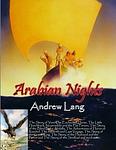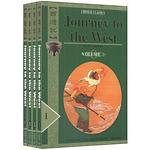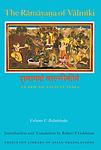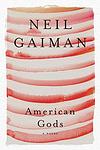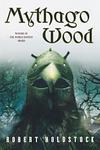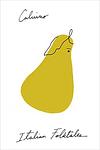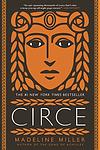The Greatest "Fiction, Mythology" Books of All Time
Click to learn how this list is calculated.
This list represents a comprehensive and trusted collection of the greatest books. Developed through a specialized algorithm, it brings together 300 'best of' book lists to form a definitive guide to the world's most acclaimed books. For those interested in how these books are chosen, additional details can be found on the rankings page.
Genres
Mythology is a category of books that explores the myths, legends, and folklore of various cultures and civilizations. These books delve into the stories, beliefs, and traditions of ancient societies, providing insight into their values, customs, and way of life. Mythology books often feature gods, goddesses, heroes, and monsters, and offer readers a glimpse into the supernatural and mystical aspects of human existence. Whether retelling classic tales or exploring new interpretations, mythology books provide a fascinating window into the rich and diverse tapestry of human culture.
Countries
Date Range
Reading Statistics
Click the button below to see how many of these books you've read!
Download
If you're interested in downloading this list as a CSV file for use in a spreadsheet application, you can easily do so by clicking the button below. Please note that to ensure a manageable file size and faster download, the CSV will include details for only the first 500 books.
Download-
1. The Odyssey by Homer
This epic poem follows the Greek hero Odysseus on his journey home after the fall of Troy. It takes Odysseus ten years to reach Ithaca after the ten-year Trojan War. Along the way, he encounters many obstacles including mythical creatures, divine beings, and natural disasters. Meanwhile, back in Ithaca, his wife Penelope and son Telemachus fend off suitors vying for Penelope's hand in marriage, believing Odysseus to be dead. The story concludes with Odysseus's return, his slaughter of the suitors, and his reunion with his family.
-
2. One Thousand and One Nights by Unknown
This is a collection of Middle Eastern folk tales compiled during the Islamic Golden Age. The stories are told by a young woman, who must weave a new tale each night for her husband, a king, to delay her execution. The tales are filled with magic, adventure, love, and betrayal, and include well-known stories such as "Aladdin's Wonderful Lamp", "Ali Baba and the Forty Thieves", and "The Seven Voyages of Sinbad the Sailor".
-
3. Epic of Gilgamesh by Unknown
This ancient Mesopotamian epic follows the story of Gilgamesh, a demigod king who rules over the city of Uruk. Unhappy with his reign, the gods create a wild man named Enkidu to challenge him. However, Gilgamesh and Enkidu become close friends and embark on several adventures together, including defeating the demon Humbaba and killing the Bull of Heaven. After Enkidu's death, Gilgamesh becomes obsessed with finding immortality, leading him on a journey to meet Utnapishtim, the only human who has been granted eternal life. The narrative explores themes of friendship, mortality, and the meaning of life.
-
4. Mahabharata by Vyasa
The book is an English translation of the ancient Indian epic, originally written in Sanskrit, which tells the story of a great war that took place between two groups of cousins, the Kauravas and the Pandavas. The narrative explores themes of duty, righteousness, and honor while also featuring a rich array of gods, goddesses, and supernatural beings. It is not only a tale of war and conflict, but also a profound philosophical and spiritual treatise, containing the Bhagavad Gita, a sacred text of Hindu philosophy.
-
5. Household Tales by Brothers Grimm
"Household Tales" is a collection of German fairy tales that includes popular stories such as "Cinderella", "Little Red Riding Hood", "Hansel and Gretel", and "Snow White". These narratives, often featuring magical elements and moral lessons, have been influential in shaping Western popular culture. The tales range from the whimsical and humorous to the dark and cautionary, reflecting a wide array of human experiences and emotions.
-
6. Metamorphoses by Ovid
"Metamorphoses" is a classical epic poem that narrates the history of the world from its creation to the deification of Julius Caesar within a loose mythico-historical framework. The narrative is filled with stories of transformation, focusing on myths and legends of the Greek and Roman world. The tales, which include the stories of Daedalus and Icarus, King Midas, and Pyramus and Thisbe, among others, are all linked by the common theme of transformation, often as a punishment or reward from the gods.
-
7. Journey to the West by Wu Cheng'en
"Journey to the West" is a classic Chinese novel that follows the adventures of a Buddhist monk and his three disciples, a monkey, a pig, and a river monster, as they travel from China to India in search of sacred Buddhist scriptures. Along the way, they face a series of challenges and obstacles, including battling demons and overcoming their own personal weaknesses. This epic tale is a blend of mythology, folklore, and fantasy, and is also a commentary on the practice and principles of Buddhism.
-
8. Ramayana by Valmiki
The book is an ancient Indian epic poem which follows the journey of Prince Rama as he embarks on a quest to rescue his beloved wife Sita from the clutches of Ravana, the demon king. The narrative explores themes of morality, dharma (duty/righteousness), and the struggle between good and evil. The story is not just about Rama's battle against Ravana, but also his spiritual journey and the importance of upholding one's duties and responsibilities.
-
9. The Golden Ass (Metamorphoses): Or Metamorphoses by Apuleius
This classic novel follows the protagonist, a young man who is transformed into a donkey after meddling with magic he doesn't understand. His journey takes him through a series of adventures, where he encounters a variety of characters from different walks of life and gets into all sorts of trouble. Through his experiences, he gains a deeper understanding of the human condition and the world around him. The narrative also includes several mythological tales and allegories, including the famous story of Cupid and Psyche. Eventually, the protagonist regains his human form through divine intervention, having learned valuable lessons about life, love, and humanity.
-
10. The Suppliants by Aeschylus
"The Suppliants" is a classic Greek drama that revolves around a group of fifty women who flee from Egypt to avoid marrying their cousins, seeking asylum in the city of Argos. The King of Argos is torn between offering them protection or facing the wrath of the Egyptians. The play explores themes of democracy, law, and the struggle between the sexes. The drama ends on a cliffhanger, with the Egyptian suitors arriving to reclaim the women and threatening war.
-
11. American Gods by Neil Gaiman
A recently released convict discovers that his wife and best friend died in a car accident. He then meets a mysterious stranger who hires him as a bodyguard. As they journey across America, it is revealed that the stranger is an old god, traveling to rally his fellow forgotten deities to wage a war against the new American gods born from society's modern obsessions with media, technology, drugs, celebrity, and more. The story blends elements of fantasy, mythology, and Americana to explore themes of faith, belief, and the nature of American identity.
-
12. Sandman by Neil Gaiman
"Sandman" is a dark and fantastical series that follows the character Dream, also known as Morpheus, one of the seven Endless who personify certain universal concepts that transcend beyond gods. The narrative explores Dream's realm and responsibilities, his interactions with humans, gods, and his own family, as well as the consequences when he is captured and subsequently escapes after 70 years. The series is renowned for its blending of myth, history, and contemporary issues, creating a richly nuanced universe that delves into the nature of storytelling itself.
-
13. Children of Gebelawi by Naguib Mahfouz
"Children of Gebelawi" is a novel that allegorically presents the stories of Moses, Jesus, and Mohammed through the lives of characters in a Cairo neighborhood. The patriarch, Gebelawi, has five children, each representing a different prophet or religious figure, and their struggles mirror the religious and philosophical conflicts of the 20th century. The book explores themes of power, faith, and redemption, and it sparked controversy upon publication due to its portrayal of sacred figures.
-
14. Mythago Wood by Robert Holdstock
In "Mythago Wood," a man named Steven Huxley delves into the mysterious depths of Ryhope Wood, a forest that holds ancient and mythical creatures known as mythagos. As he explores the ever-changing landscape, Steven encounters his deceased father's mythago, a powerful and seductive woman named Guiwenneth. Drawn into a world of magic and danger, Steven must confront his own desires and confront the dark secrets that lie within the heart of the wood.
-
15. The Tale of the Bamboo Cutter by Unknown
"The Tale of the Bamboo Cutter" is a classic piece of Japanese literature that follows the story of a bamboo cutter who finds a tiny girl inside a glowing bamboo stalk. The girl grows into a beautiful and desirable woman, attracting numerous suitors including the emperor. However, she reveals that she is not from Earth, but from the moon and is eventually taken back, leaving the bamboo cutter and her suitors heartbroken. The tale is a poignant exploration of love, loss, and the transient nature of beauty.
-
16. Grendel by John Gardner
"Grendel" is a thought-provoking novel that retells the epic Beowulf from the perspective of the monster, Grendel. The book explores themes of existentialism, morality, and the nature of humanity as Grendel navigates his lonely existence and interacts with various characters, including the heroic Beowulf. Through his introspective musings, Grendel challenges traditional notions of good and evil, ultimately questioning the purpose and meaning of life.
-
17. Italian Folktales by Italo Calvino
This book is a comprehensive collection of 200 traditional Italian folktales, meticulously gathered from different regions of Italy. The stories range from humor to horror, from fairy tales to moral lessons, from whimsical to deeply symbolic, showcasing the rich cultural heritage of Italy. These tales, translated and retold, provide a fascinating insight into the folklore, traditions, and beliefs of Italian people.
-
18. The Song of Achilles by Madeline Miller
The novel is a reimagining of the ancient Greek epic of the Trojan War, told from the perspective of Patroclus, an exiled young prince who becomes the beloved companion of Achilles, the greatest warrior of his age. Their deep bond and affection for one another transform into a powerful love that defies the expectations of their society and the will of the gods. As they grow into men, their fates become increasingly intertwined with the legendary conflict at Troy, where honor, sacrifice, and destiny culminate in a poignant and tragic conclusion. The story explores themes of heroism, glory, and the humanizing effects of love against the backdrop of war and the capricious whims of immortals.
-
19. The Palm-Wine Drinkard by Amos Tutola
This novel follows the story of a man from Nigeria who is addicted to palm wine. After his tapster (the man who taps palm trees to make his wine) dies, he embarks on a journey into the spirit world to find him. Along the way, he encounters a host of supernatural beings and experiences a series of bizarre and thrilling adventures. The book is a unique blend of Yoruba folktales, surrealism, and fantasy.
-
20. The King Must Die by Mary Renault
This novel is a historical fiction that reimagines the myth of Theseus, a young man who believes he is the son of Poseidon. He grows up in the palace of his mother's husband, King Pittheus of Troizen, but later ventures out to discover his true father. His journey leads him to Athens, where he overthrows the cruel King Minos, and to Crete, where he becomes a bull-leaper and eventually kills the monstrous Minotaur. The book explores themes of destiny, heroism, and the struggle between old and new religious practices.
-
21. The Last World by Christoph Ransmayr
"The Last World" is a novel that reimagines the exile of the Roman poet Ovid in a remote village at the edge of the Black Sea. The story is set in a mythical time and place, where the villagers are haunted by strange transformations and echoes of Ovid's metamorphoses. The novel blurs the lines between the real and the imaginary, the past and the present, and the world of the living and the dead, creating a surreal and dreamlike atmosphere.
-
22. Indigo by Marina Warner
"Indigo" is a reimagining of Shakespeare's "The Tempest" set in the modern era. The book tells the story of a wealthy London businessman who is exiled to a Caribbean island where he uses his knowledge of science to control the environment and the island's inhabitants. His daughter, Miranda, grows up on the island, sheltered from the world and manipulated by her father's experiments. The story explores themes of colonialism, power, and the destructive potential of knowledge.
-
23. The Tootinameh; Or, Tales of a Parrot by India, Iran
"The Tootinameh; Or, Tales of a Parrot" is a collection of traditional stories from India and Iran, told from the perspective of a parrot. The parrot tells tales to a young woman to keep her from straying while her husband is away, weaving narratives of love, honor, and morality. The book is a rich tapestry of cultural and historical insights, showcasing the storytelling traditions of India and Iran.
-
24. Circe by Madeline Miller
The novel is a reimagining of the life of Circe, a minor goddess and witch from Homer's Odyssey. Born into the house of Helios, god of the sun, Circe is scorned by her family and turns to mortals for companionship, leading her to discover her powers of witchcraft. After transforming her mortal lover into a sea monster, she is banished to a deserted island by Zeus. Over the centuries, she hones her magical abilities, encounters famous mythological beings, and struggles with her immortality, loneliness, and desire for love and freedom.
-
25. Tales from the Kathasaritsagara by Somadeva
"Tales from the Kathasaritsagara" is a collection of ancient Indian stories written in Sanskrit. The book is a compilation of legends, folktales, and myths, including tales of gods, goddesses, kings, queens, and commoners, as well as animals and supernatural beings. The stories are filled with wit, humor, wisdom, and moral lessons, offering a fascinating insight into the rich cultural and literary heritage of ancient India.
Reading Statistics
Click the button below to see how many of these books you've read!
Download
If you're interested in downloading this list as a CSV file for use in a spreadsheet application, you can easily do so by clicking the button below. Please note that to ensure a manageable file size and faster download, the CSV will include details for only the first 500 books.
Download
